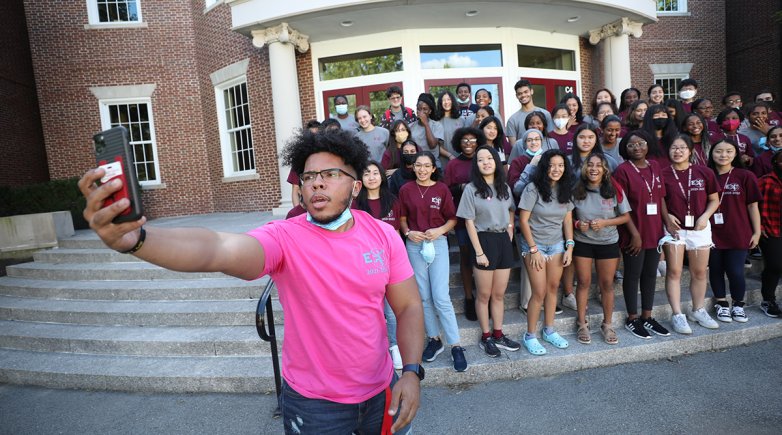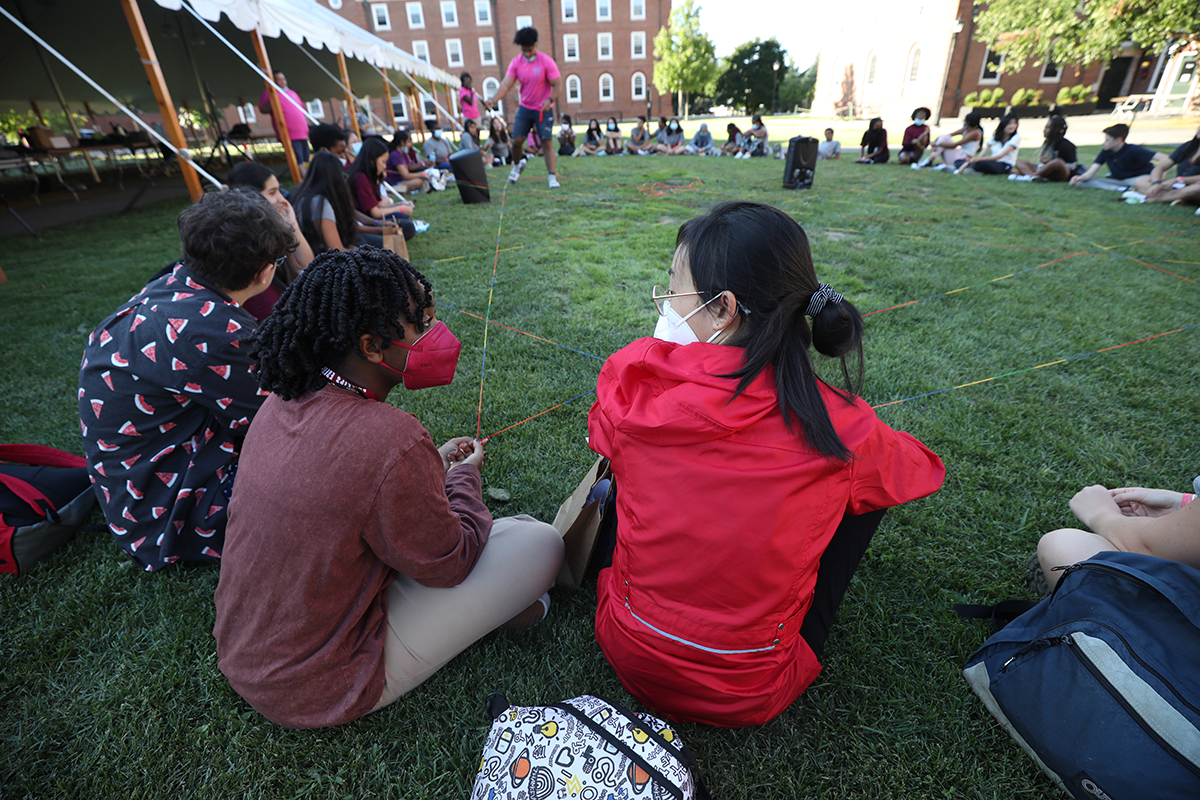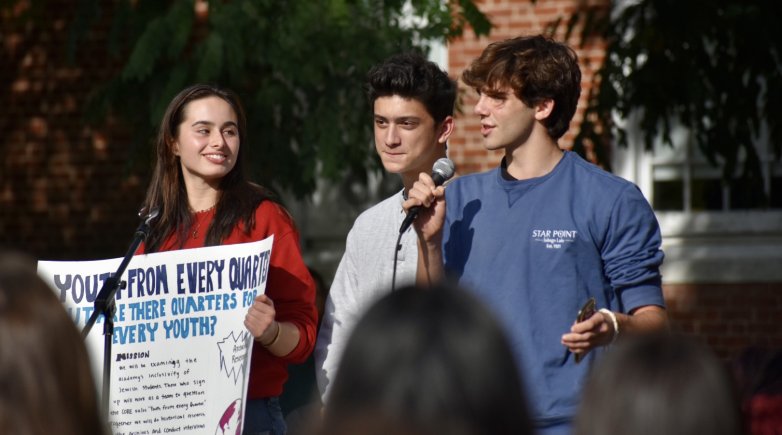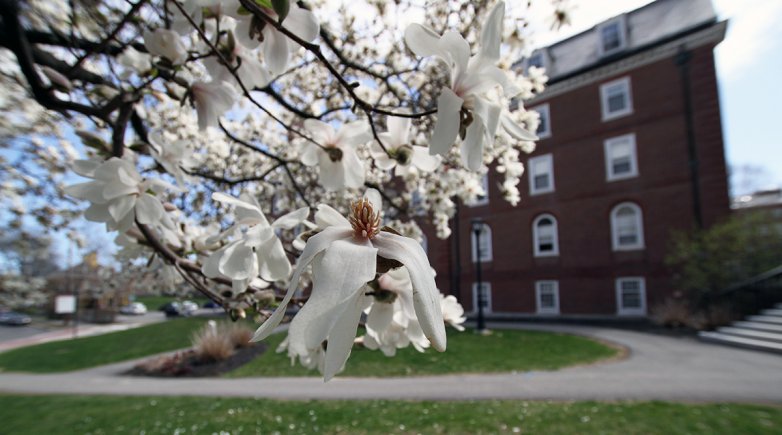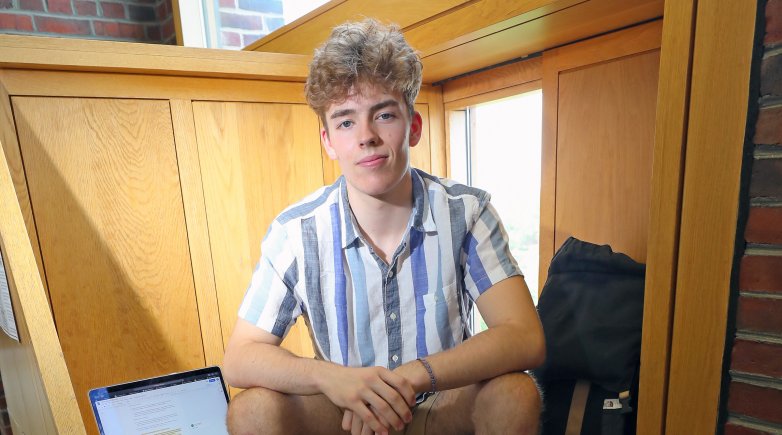A shared experience
A revamped Exeter Equitable Experience program offers opportunity to build community.
Assistant Director of Equity and Inclusion Kevin Pajaro-Mariñez snaps a selfie with participants of the Equitable Exeter Experience program.
It’s a day before the official start of the school year, but the lively conversation spilling out of room 207 in Phillips Hall might have you believe the term is well underway. Inside, Instructor in English Courtney Marshall looks on as a prompt about pop music, meant to serve as an icebreaker, is bandied about by a group of students whose thaw around the Harkness table and with each other started days ago.
The class is part of a three-day orientation program for minority and LGBTQ+ students and students with high financial need known as Equitable Exeter Experience, or E3. After a three-year hiatus, the program has been revamped and revived by Director of Equity and Inclusion Stephanie Bramlett. “What the E3 program does is help students prepare for a school that may not necessarily be ready for them,” Bramlett says. “For some students, this is the most diverse place they’ve ever been. For other students this is the least diverse place they’ve ever been. So, what does it feel like to sit around the table and have the conversations about identity, which we’re asking them to do all the time, at a school like Exeter?”
After students in Marshall’s class exchange thoughts on singers Taylor Swift and Harry Styles, they dive into a dynamic discussion of the poem “Abandoned Farmhouse” by Ted Kooser. This practice time at the Harkness table is an important way to acclimate new students to what is an often unfamiliar way of learning.
